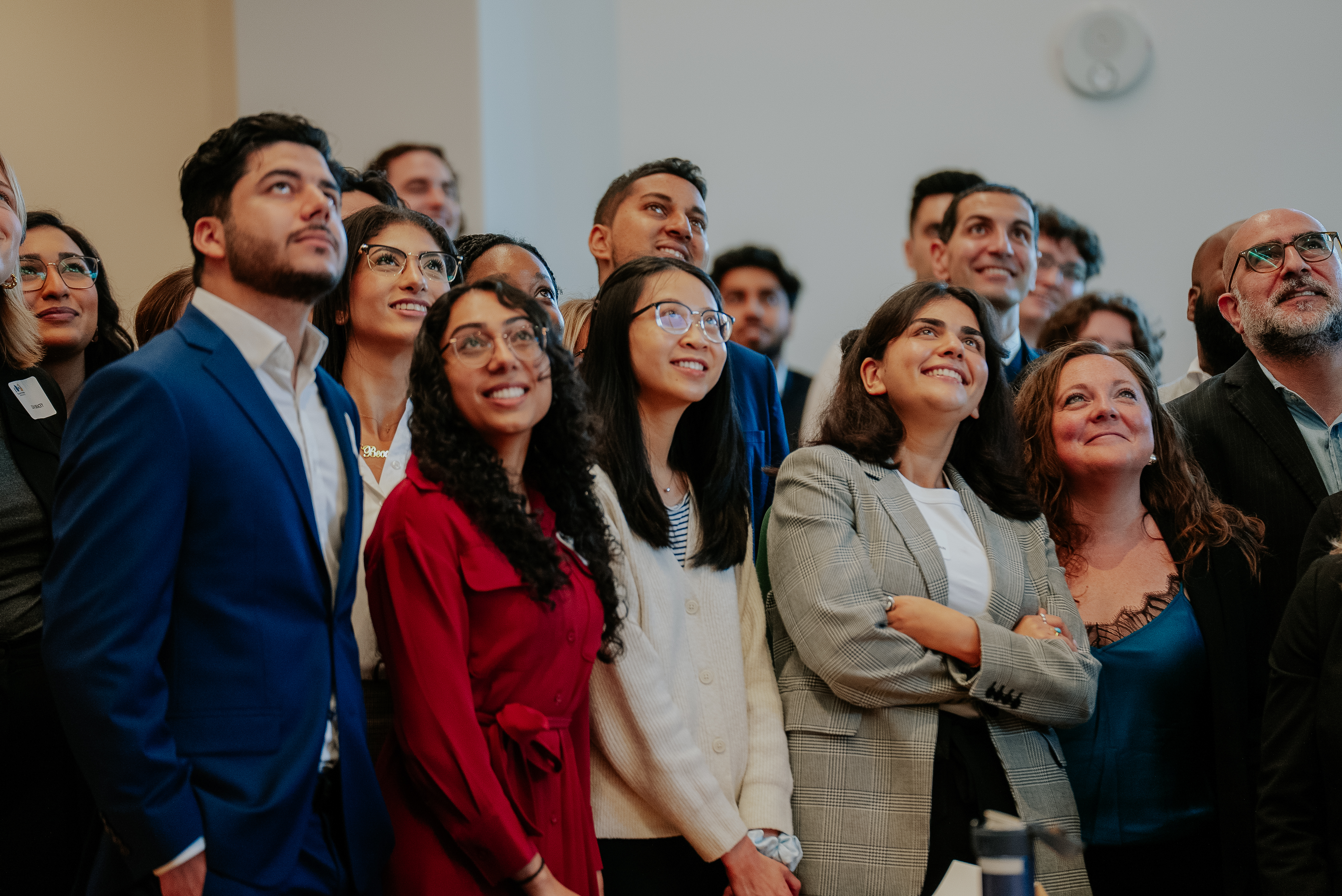Saranga Ugalmugle dedicated several years of her career in Maharashtra, India giving voice to the voiceless. She advocated for minority rights, labour rights, gender equality, and environmental protection, but when she saw how the political climate in India turned increasingly repressive, she felt compelled to pause her litigation practice and reflect on the deeper connections between law, society, and violence.
Pursuing an LLM in India allowed her to explore these questions and solidified her desire to conduct in-depth research. “The University of Windsor‘s programme, with its strong focus on transnational justice, offered the perfect platform to delve into these issues,” she says.
Ugalmugle learned about the LLM programme from the Community for the Eradication of Discrimination in Education and Employment (CEDE) in India and was drawn to the LLM’s focus on transnational justice. “It was this alignment with my research interests that ultimately led me to choose [the University of Windsor],” Ugalmugle says. “I sought a programme that would allow me to combine advanced research with pedagogical training.”

The LLM programme admits only four to six students to each cohort, allowing for a personalised learning experience. Source: University of Windsor
LLM students at Windsor Law are not just there to become legal experts, though that’s a given. Only a small cohort of four to six students are accepted each year, and that’s because they’re looking for people wholly dedicated to transnationalism and access to justice — two of the programme’s main themes. It’s an intellectually stimulating journey that engages you with community – ideal for anyone seeking an education to drive change.
The programme offers two streams to choose from, based on your preference. You can pursue a one-year period of study, completing a thesis under the supervision of a faculty expert.
If you’re interested in learning how to teach go for the two-year stream instead, which consists of a research thesis and a Certificate in University Teaching and Learning. You’re still taking the compulsory courses to build a strong research foundation and completing a 100- to 125-page research thesis like the one-year stream.
“This proactive approach ensures that students are not suddenly thrust into teaching roles without preparation after graduation. Instead, they are equipped with the skills, confidence, and experience needed to excel in academia,” says Vasanthi Venkatesh, an associate professor.
To Ugalmugle, the Certificate in University Teaching and Learning programme “significantly enhanced” her LLM experience. It gave her “valuable pedagogical skills and a deeper understanding of the teaching and learning process.” “Through this programme, I’ve developed the ability to effectively communicate complex legal concepts, design engaging lesson plans, and create a supportive learning environment,” she says. “This combination of theoretical knowledge and practical experience has broadened my perspectives and prepared me for a variety of academic and professional roles.”
Most of all, Ugalmugle is grateful for the university’s support systems. From the Associate Dean’s office to the Reference Librarian, everyone has gone the extra mile to offer guidance in all areas, including finance. “Financial support is crucial for graduate students, and the faculty has been instrumental in securing research work,” she says.
Windsor Law provides ample funding opportunities. You can apply for funding packages up to 16,000 Canadian dollars (US$11,377.86) – through a mixture of scholarships, Graduate and Teaching Assistantships (GA/TA’s) and other means. By reducing these burdens, students here can fully focus on what matters most: their LLM with a unique focus on access to justice and transnational law.

The researchers at Windsor Law are experts within their field and provide bountiful research opportunities to students. Source: University of Windsor
“Windsor’s strong emphasis on social justice is a defining feature of its LLM programme, deeply shaping students’ learning experiences and their future contributions to the field,” says Venkatesh. “The programme benefits from an extensive faculty engaged in direct community work, both in Canada and globally, with a focus on distributive and anti-colonial justice.”
Within and beyond campus, Ugalmugle has had the privilege of interacting with and learning from established and emerging scholars in the field. She was able to work as an editorial assistant with the Third World Approaches to International Law Review (TWAILR) for two years, a journal for international law and policy scholars and practitioners. It gave her the chance to dive into groundbreaking research and build a network that’ll be beneficial to her career later.
Other students have developed new policies for the government agency, Ontario Human Rights Commission, addressing issues like caste discrimination. They have supported United Nations bodies on global initiatives for legal and social issues and contributed to a multi-year funded project called the “Faces of Racism: Everyday Racialised Encounters in Windsor-Essex.”
Just as much can be learned from faculty members on campus. There are regular faculty seminars featuring visiting and resident scholars who bring diverse perspectives on social justice issues as well. “Faculty members actively collaborate with marginalised communities, advocate for transformative legal change, and engage in global social justice movements,” says Venkatesh. “This provides students with a unique opportunity to learn from scholars who not only teach but also participate in real-world advocacy, working before domestic and international bodies to address systemic inequalities.”
Learn more about the LLM programme at Windsor Law.
Follow University of Windsor on X, Facebook, Instagram, and LinkedIn.











